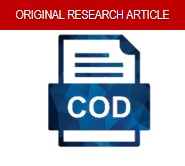Sentencing Disparities in Corruption Cases and Judicial Discretion in Indonesian Courts
DOI:
https://doi.org/10.46924/jihk.v6i2.248Keywords:
Sentencing Disparities, Corruption, Judicial Discretion, CourtsAbstract
Judicial discretion in case adjudication often leads to sentencing disparities, including in cases of corruption. This phenomenon is evident in Decision Number 77/Pid.Sus-Tpk/2023/PN.Jkt. Pst and Decision Number 92/Pid.Sus-Tpk/2023/PN Mks. This study explores the factors contributing to sentencing disparities and the judicial considerations in these decisions. The research employs a normative juridical approach. The findings indicate that sentencing disparities are influenced by the Continental European legal system adopted by Indonesia, which does not emphasize the use of precedent; the broad discretion granted to judges; the lack of standardized sentencing guidelines; and personal factors inherent to judges. In both cases, disparities arose due to differing judicial perspectives on the purposes of sentencing, as well as the defendants’ confessions and personal circumstances, which were taken into account. These findings highlight the complexities involved in achieving justice in corruption cases.
Downloads
References
Journals
Arifia, Maria Ulfa, Binsar M. Gultom, and Markoni Markoni. “Upaya Meminimalisir Disparitas Putusan Hakim.” Jurnal Syntax Transformatin 4, no. 1 (2023): 15–31. https://doi.org/10.46799/jst.v4i1.677.
Gulo, Nimerodi. “Disparitas Dalam Penjatuhan Pidana.” Masalah-Masalah Hukum 47, no. 3 (2018): 215–27. https://doi.org/10.14710/mmh.47.3.2018.215-227.
Hajairin, Hajairin, Syamsuddin Syamsuddin, Kasmar Kasmar, and Gufran Sanusi. “Kebijakan Pidana Pengawasan Dalam Pembaharuan Hukum Pidana Indonesia.” IBLAM Law Review 2, no. 2 (2022): 165–74. https://doi.org/10.52249/ilr.v2i2.81.
Harkrisnowo, Harkristuti. “Domestic Violoence (Kekerasan Dalam Rumah Tangga) Dalam Prospektif Kriminologis Yuridis.” Indonesian Journal of International Law 1, no. 4 (2021): 709–34. https://doi.org/10.17304/ijil.vol1.4.563.
Idrus, Nur Fadilah Al. “Disparitas Putusan Pemidanaan Perkara Penipuan Online.” Jurnal Yudisial 16, no. 3 (2023): 325–341. https://doi.org/10.29123/jy.v16i3.598.
Kusyandi, Adi, and Saefullah Yamin. “Disparitas Putusan Hakim Pidana Berkualitas Yang Mencerminkan Rasa Keadilan Dalam Sistem Hukum Indonesia.” Yustitia 9, no. 1 (2023): 122–132. https://doi.org/10.31943/yustitia.v9i1.173.
Leawoods, Heather. “Gustav Radbruch: An Extraordinary Legal Philosopher.” Journal of Law and Policy 2 (2000): 489–515. https://openscholarship.wustl.edu/law_journal_law_policy/vol2/iss1/16.
Mabilehi, Maryo Jaxel, Rudepel Petrus Leo, and Heryanto Amalo. “Faktor Penyebab Dan Upaya Penanggulangan Disparitas Putusan Bagi Pelaku Tindak Pidana Kekerasan Seksual Di Wilayah Hukum Pengadilan Negeri Kelas I A Kupang.” Terang: Jurnal Kajian Ilmu Sosial, Politik Dan Hukum 1, no. 4 (2024): 98–107. https://doi.org/10.62383/terang.v1i4.616.
Nurasiah, Mita, Beniharmoni Harefa, and Riki Perdana Raya Waruwu. “Disparitas Pidana Terhadap Justice Collaborator Dalam Tindak Pidana Korupsi.” Jurnal Esensi Hukum 4, no. 1 (2022): 88–98. https://doi.org/10.35586/esh.v4i1.155.
Nurhafifah, Nurhafifah, and Rahmiati Rahmiati. “Pertimbangan Hakim Dalam Penjatuhan Pidana Terkait Hal Yang Memberatkan Dan Meringankan Putusan.” Kanun: Jurnal Ilmu Hukum 17, no. 2 (2015): 341–62. https://jurnal.usk.ac.id/kanun/article/view/6067.
Zuhrah, Zuhrah, Adi Sulistiyono, Ridwan Ridwan, and Syamsuddin Syamsuddin. “Independensi Hakim Dalam Berbagai Disparitas Putusan Perkara Korupsi Di Mahkamah Agung.” Fundamental: Jurnal Ilmiah Hukum 13, no. 1 (2024): 47–70. https://doi.org/10.34304/jf.v13i1.236.
Books
Langkun, Tama S., Bahrain Bahrain, Mouna Wassef, Tri Wahyu, and Asram Asram. Studi Atas Disparitas Putusan Pemidanaan Perkara Tindak Pidana Korupsi. Jakarta: Indonesia Corruption Watch, 2014.
Muladi, Muladi, and Barda Nawawi Arief. Teori-Teori Dan Kebijakan Pidana. Bandung: Alumni, 2010.
Rahardjo, Satjipto. Hukum Dan Masyarakat. Bandung: Sinar Baru, 2018.
Soemitro, Rony Hanitijo. Metode Penelitian Hukum Dan Jurimetri. Jakarta: Ghalia Indonesia, 1990.
Soerjono, Soekanto, and Sri Mamudji. “Penelitian Hukum Normatif: Suatu Tinjauan Singkat.” Jakarta: PT Raja Grafindo Persada, 1995.
Sudarto, Sudarto. Hukum Dan Hukum Pidana. Bandung: Alumni, 1977.
Downloads
Published
Issue
Section
License
Copyright (c) 2024 Ahmad Fadli Daulay

This work is licensed under a Creative Commons Attribution 4.0 International License.
Authors who publish with this journal agree to the following terms:
- Copyright on any article is retained by the author(s).
- The author grants the journal, the right of first publication with the work simultaneously licensed under a Creative Commons Attribution License that allows others to share the work with an acknowledgment of the work’s authorship and initial publication in this journal.
- Authors are able to enter into separate, additional contractual arrangements for the non-exclusive distribution of the journal’s published version of the work (e.g., post it to an institutional repository or publish it in a book), with an acknowledgment of its initial publication in this journal.
- Authors are permitted and encouraged to post their work online (e.g., in institutional repositories or on their website) prior to and during the submission process, as it can lead to productive exchanges, as well as earlier and greater citation of published work.
- The article and any associated published material is distributed under the Creative Commons Attribution 4.0 International License



 Sinta ID:
Sinta ID: 


















